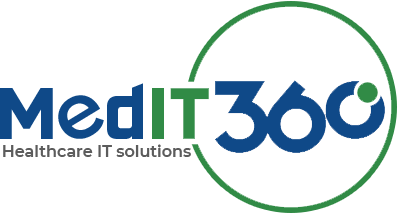Specialized services known as orthopaedic medical billing are intended to handle the revenue cycle management and billing requirements of orthopaedic clinics, practices, and healthcare facilities. These services are designed to maximize revenue collection for orthopaedic operations, guarantee compliance with healthcare legislation, and expedite the billing process.
What is the process for orthopaedic healthcare billing?
The process starts with
- Patient Registration: When a patient makes an appointment, the procedure starts. All of their personal data, insurance information, and medical history are collected.
- Medical Coding: Accurate codes are assigned by expert orthopaedic coders after the patient’s visit or procedure after they have reviewed the medical data. This includes codes from the Current Procedural Terminology (CPT) and the International Classification of Diseases (ICD) for diagnoses and procedures.
- Claims Submission: Following coding, the billing service produces and transmits claims to regulatory bodies or insurance providers (such as Medicare or Medicaid). As part of this process, claims must be verified to match all the requirements, including those for supporting documents.
- Denial Management: When a claim is rejected, the billing provider investigates the reasons behind the denial and attempts to fix any mistakes or inconsistencies.
- Patient billing: Patients are sent invoices and statements for their share of the cost (such as copayments or deductibles) through billing services, which also manage healthcare consumer billing. They frequently offer patients a variety of payment choices.
- Follow-up and collections: Billing services oversee the follow-up procedure to keep tabs on the position of claims and unpaid patient balances. They take the required actions to quickly obtain payments from patients and insurance.
- Financial Reporting: Orthopedic billing services regularly offer orthopaedic practice financial reports that include information on the claims that were submitted, the payments that were made, any unpaid balances, and revenue trends. For practice management and financial planning, this information is important.
Advantages of orthopaedic medical billing include;
Specialized knowledge: Experts with an in-depth understanding of orthopaedic treatments, coding, and billing rules are employed by orthopaedic billing services. This speciality reduces billing mistakes and raises the percentage of claims that are approved.
Enhanced Efficiency: By outsourcing billing operations, the orthopaedic practice may concentrate on providing patient care and performing its primary functions. As a result, there is an increase in operational effectiveness and patient satisfaction.
Revenue Optimization: Billing services successfully manage denials, identify underpayments, and optimize charge schedules. Higher revenue collection for the practice results from this.
Lessened Administrative Burden: Managing billing procedures internally may be difficult and time-consuming. By outsourcing these duties, the practice’s personnel will have less administrative work to do, freeing up their time for other crucial activities.
Advanced Technology: Billing services make use of cutting-edge billing software and technology, which aids in managing the revenue cycle overall and in tracking claims and monitoring reimbursements.
Assurance of compliance: Healthcare laws are always evolving. Billing services are knowledgeable about these legal demands and assure their careful observance, lowering the possibility of compliance infractions.
Cost Savings: By cutting back on human, training, and software costs, outsourcing can result in cost savings. Compared to internal billing management, it may be a more affordable option.
conclusion
To sum up, orthopaedic medical billing services provide a thorough and effective way to handle the intricate financial aspects of orthopaedic clinics and hospitals. These services have specialist knowledge of billing laws, coding, and orthopaedic therapies, which helps reduce errors and increase revenue collection. Orthopaedic practices can increase operational effectiveness and improve patient satisfaction by outsourcing their billing procedures and concentrating on providing high-quality medical care. Through the efficient management of denials, detection of underpayments, and establishment of charge schedules, these services help maximize income. To lower the possibility of breaking the law, they also make use of cutting-edge technology and guarantee adherence to constantly changing healthcare regulations. In addition, orthopaedic medical billing outsourcing can save money in comparison to internal billing administration, which makes it a financially sensible decision for medical practices. Orthopaedic medical billing services are crucial to the financial stability and business success of orthopaedic clinics and facilities in the cutthroat and dynamic healthcare industry.
Why You Choose You MEDIT360 for Medical Billing Services?
Get a Free Consultation
MedIT360 employs a highly trained billing staff that can remotely handle specialty billing with remarkable efficiency and accuracy. The company has served more than 100+ practices in 22 states. Outsource medical billing services to a team that works closely with providers to decrease the stress of the billing and boost revenue collections. Our support team is available 24/7 to help our clients in a personalized way, listening to their problems, and providing the best results

